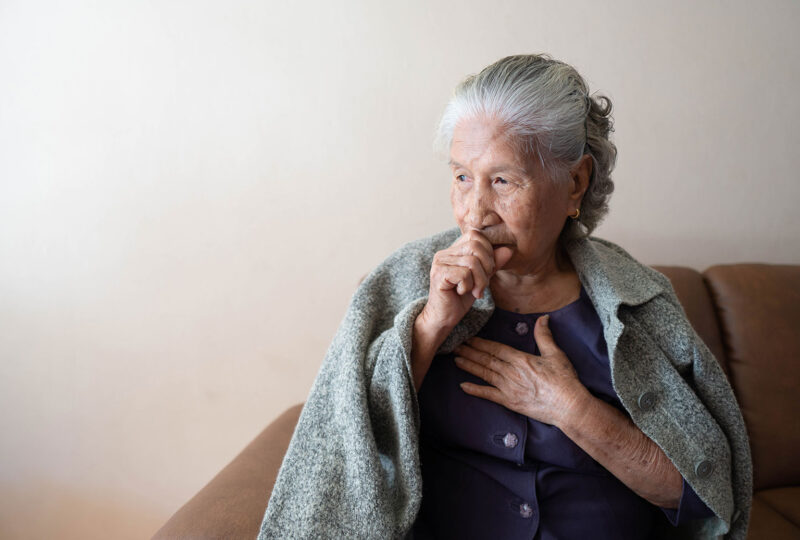Question: Why is pneumonia so much more serious in older adults?
Answer: Before answering the question of why pneumonia is more dangerous in older adults, it’s important to understand what pneumonia is. Pneumonia is a potentially serious infection that can involve one or both lungs. The most common type of pneumonia is pneumococcal pneumonia, which is caused by the Streptococcus pneumoniae bacteria, but pneumonia can also be caused by viruses or fungi.
Some viruses, such as influenza and the virus that causes COVID-19, can lead to viral pneumonia. Viral infections can also lead to what’s known as a secondary bacterial pneumonia caused by having your immune system weakened from fighting the viral infection.
Pneumonia can range in severity from mild to life-threatening. When a person gets pneumonia, the air sacs in the lungs fill up with pus and mucus. It’s in these air sacs that oxygen gets transferred into the bloodstream and carbon dioxide gets removed from the blood. When the air sacs fill up, the exchange of oxygen and carbon dioxide is interrupted, and it can be very difficult to breathe. While most people will respond well to treatment for pneumonia, some people are at higher risk of severe illness and potentially even death.
Older adults are among the group of individuals who are at higher risk of severe illness if they get pneumonia. There are many reasons for this, not the least of which is because older people are simply more frail than younger people. An article published in Clinics in Geriatric Medicine in 2011 defines frailty as “a common clinical syndrome in older adults, which carries an increased risk for poor health outcomes, including falls, incident disability, hospitalization, and mortality.”
Older people are also more likely to have multiple health conditions – known as comorbid conditions – which can cause them to have a weaker immune system, as well as organs that are diseased and less able to handle the stress of a serious infection. Older people are also more likely to be on multiple medications. There are many medications, such as steroids and chemotherapy drugs, that can suppress the immune system and make it harder for the body to fight off infections.
The best way for older individuals to avoid the serious consequences of pneumonia is to do everything possible to avoid getting pneumonia in the first place. Eat a healthy diet, stay well hydrated, exercise and stay as active as possible, and avoid tobacco smoke. These simple strategies can help maintain as strong an immune system as possible.
Eat a healthy diet, stay well hydrated, exercise and stay as active as possible, and avoid tobacco smoke. These simple strategies can help maintain as strong an immune system as possible.
Additionally, many of the preventive measures put into place during the recent pandemic that were meant to reduce the spread of COVID are also effective at reducing the chance of contracting a community-acquired pneumonia: Wear a mask in public places, wash hands frequently, avoid people who might be sick. And perhaps the most important way to protect yourself is to get vaccinated. The CDC recommends that everyone aged 65 and older receive the pneumococcal vaccine.
In addition, because viral infections can lead to pneumonia, seniors should also talk with their doctor about getting an annual influenza vaccine and the complete series of COVID-19 vaccines.


